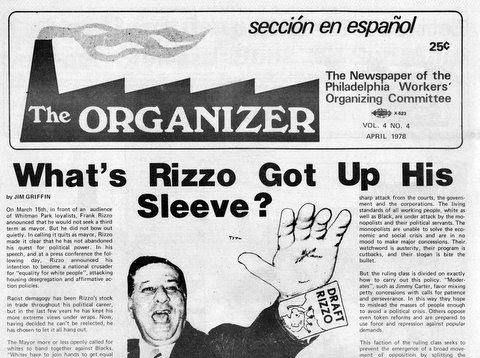
First Published: The Organizer, Vol. 4, No. 4, April 1978.
Transcription, Editing and Markup: Paul Saba
Copyright: This work is in the Public Domain under the Creative Commons Common Deed. You can freely copy, distribute and display this work; as well as make derivative and commercial works. Please credit the Encyclopedia of Anti-Revisionism On-Line as your source, include the url to this work, and note any of the transcribers, editors & proofreaders above.
On March 8th over 300 people filled the Tabernacle Church in West Philadelphia to commemorate International Women’s Day. Coming at a time when the democratic rights of women are under sharp attack, it was good to see men as well as women, white, Black and Puerto Rican workers and political activists come out to celebrate the struggle for equality for women. In various ways all three speakers on the program sought to explain this developing unity and highlight its importance.
Candace Newlin, speaking for the Women’s Liberation Commission of the PWOC, drew out the connections between Women’s Liberation and the class struggle. Newlin pointed out that the struggle against sexism is an essential part of the revolutionary program of the working class, vital to the development of class unity and the alliance between the worker’s movement and the women’s movement. At the same time the women’s liberation movement needs the leadership of working class women to develop its revolutionary potential and build unity with the whole working class.
Roz Purnell, chair of the United People’s Campaign Against Apartheid and Racism (UPCAAR), spoke on the triple oppression of national minority women and the critical importance of the struggle against racism for the women’s liberation movement.
Finally, Bruce Bodner, representing the Blue Ribbon Group, a rank and file caucus in UAW Local 92, talked about the importance of the struggle against sexism for men workers. Bodner drew on the experience of the rank and file movement in his local to illustrate the way in which sexist attitudes and practices undermine the interests of all workers.
Entertainment was provided by Roy Brown, a Puerto Rican folksinger, Kulu Mele, an Afro-American dance troupe and Bev Grant, another people’s singer.
The program was flawed by a late start and went much longer than anticipated. While many in attendance found the program exciting and educational in spite of these problems, others have expressed criticisms of the political content of both the speeches and the entertainment.
We want to apologize for the undue delay in getting the program going. We also want those who raised criticisms to know we are giving them attention in the context of an overall evaluation of the event. We will summarize this in the Organizer once we have completed it.